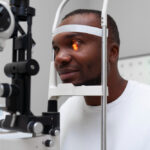Diagnostic scans are an integral part of modern healthcare, providing essential information that helps doctors make accurate diagnoses and create effective treatment plans. At Esperanza Health, we offer a range of advanced diagnostic imaging services, including X-rays, ultrasounds, and more, to assist in the evaluation and management of various medical conditions. In this article, we’ll explore the importance of diagnostic scans, the different types of scans available, and what patients can expect during the process.
Why Diagnostic Scans Are Important
Diagnostic scans are invaluable tools in healthcare because they allow healthcare providers to look inside the body without the need for invasive procedures. These scans provide detailed images of the body’s internal structures, helping doctors identify abnormalities, monitor the progression of diseases, and guide treatment decisions.
For example, an X-ray can reveal a broken bone, while an ultrasound can show the development of a fetus or detect abnormalities in organs such as the liver or kidneys. In some cases, scans can even help detect serious conditions like tumors or blockages in blood vessels, enabling early intervention and treatment.
By using diagnostic scans, doctors can make more informed decisions and avoid unnecessary surgeries or treatments. These imaging tools play a crucial role in both preventive care and the management of chronic conditions.
Types of Diagnostic Scans Available at Esperanza Health
At Esperanza Health, we offer several types of diagnostic scans to meet the diverse needs of our patients:
- X-Rays: X-rays are one of the most common and widely used imaging techniques. They are particularly useful for diagnosing bone fractures, joint dislocations, and certain lung conditions. X-rays use a small amount of radiation to capture images of the body’s internal structures.
- Ultrasounds: Ultrasounds use sound waves to create images of the body’s internal organs. This type of scan is commonly used in prenatal care to monitor the development of a baby, but it can also be used to examine the heart, liver, kidneys, and other organs. Unlike X-rays, ultrasounds do not use radiation, making them safe for pregnant women.
- CT Scans: Computed Tomography (CT) scans combine multiple X-ray images taken from different angles to create a detailed cross-sectional image of the body. CT scans are often used to diagnose conditions such as tumors, infections, and blood clots, and they provide more detailed images than standard X-rays.
- MRI Scans: Magnetic Resonance Imaging (MRI) uses powerful magnets and radio waves to produce detailed images of the body’s soft tissues, such as the brain, spinal cord, and muscles. MRI scans are particularly useful for diagnosing conditions affecting the nervous system and soft tissues.
When and Why You May Need a Diagnostic Scan
There are many reasons why your doctor may recommend a diagnostic scan. These scans can be used to:
- Diagnose unexplained pain, swelling, or other symptoms
- Monitor the progression of a known condition, such as arthritis or cancer
- Guide surgical procedures, such as biopsies or joint replacements
- Evaluate the effectiveness of ongoing treatments
- Detect early signs of diseases, such as tumors or infections
If you’re experiencing symptoms that require further investigation, a diagnostic scan can provide your doctor with valuable information to make a more accurate diagnosis and create a targeted treatment plan.
What to Expect During a Scan
The experience of undergoing a diagnostic scan will depend on the type of scan you’re receiving. X-rays and ultrasounds are typically quick and painless, with minimal preparation required. For CT and MRI scans, you may need to wear a hospital gown and remain still for a longer period of time while the images are being captured.
In some cases, a contrast dye may be used to enhance the clarity of the images. This dye may be injected or ingested, depending on the type of scan. Your healthcare provider will explain the process and any preparations needed before your scan.
Conclusion
Diagnostic scans are a cornerstone of modern healthcare, providing doctors with the detailed information they need to diagnose and treat a wide range of conditions. At Esperanza Health, we are committed to offering the highest quality imaging services to ensure accurate diagnoses and effective treatment plans. Whether you need an X-ray, ultrasound, or another type of scan, our skilled team is here to guide you through the process and ensure your comfort. Schedule your diagnostic scan with us today and take the next step toward better health.



